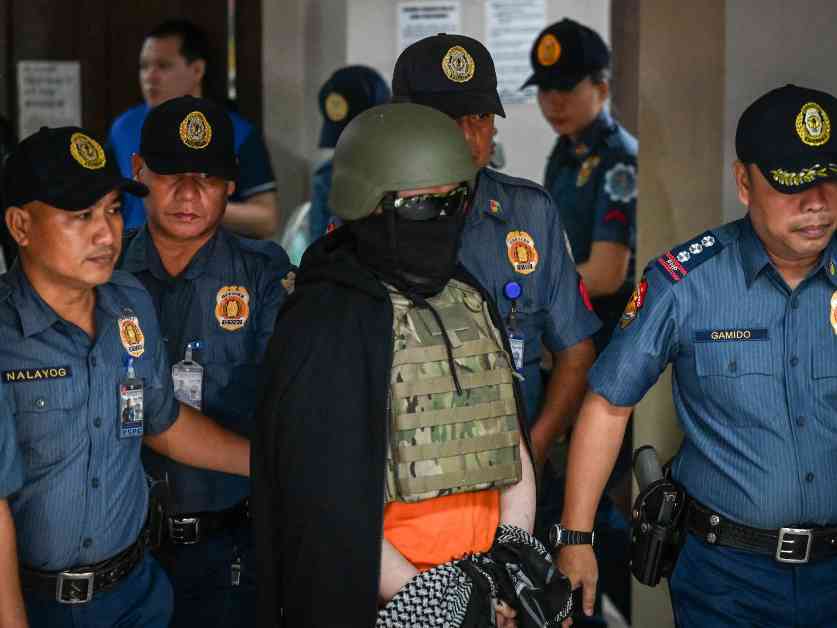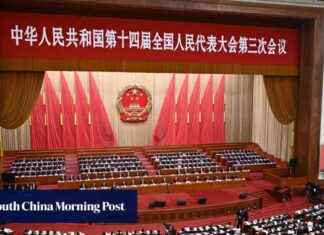Philippines Preacher Apollo Quiboloy Pleads Not Guilty to Child Abuse and Trafficking Charges
Philippines preacher Apollo Quiboloy, known as the “anointed son of God”, has recently found himself at the center of a legal battle as he faces charges of child abuse and human trafficking. Quiboloy, a prominent figure in the Philippines and a close ally of former President Rodrigo Duterte, was arrested after a thorough search of his church’s compound in the southern city of Davao.
Arrested on multiple charges, including sex abuse of children and trafficking, Quiboloy has maintained his innocence. His lawyer, Israelito Torreon, stated that Quiboloy pleaded not guilty during his arraignment in Manila. A pre-trial hearing has been scheduled for October to further address the allegations brought against him.
The Case Unfolds: Allegations and Accusations
The allegations against Quiboloy are grave, with two of the alleged victims coming forward to testify against him. These victims, reportedly subjected to sexual abuse and exploitation at a young age, have shed light on the dark practices allegedly carried out within Quiboloy’s church.
Accompanied by four co-accused, Quiboloy arrived at his arraignment amidst a media frenzy. Donning a bulletproof helmet and vest, he appeared almost unrecognizable, a stark contrast to his public persona as a charismatic preacher. When asked for a message to his followers, Quiboloy simply replied in Filipino, urging them to “stay strong”.
The victims, now adults, were allegedly molested when they were just 12 or 13 years old. They were coerced into performing sexual acts under the guise of serving God and gaining entry to heaven. These disturbing revelations have sparked outrage and calls for justice from the public.
Legal Battles and International Indictments
In addition to the charges filed in the Philippines, Quiboloy is also facing legal action in the United States. A grand jury has indicted him for conspiracy to engage in sex trafficking, including trafficking of children and bulk cash smuggling. The indictment paints a troubling picture of Quiboloy’s alleged exploitation of women, who were recruited as personal assistants to attend to his every need, including sexual favors.
Despite the US indictment, President Ferdinand Marcos has stated that the government is currently prioritizing the cases filed in the Philippines and has not yet sought to extradite Quiboloy to the US. This decision underscores the severity of the allegations against Quiboloy and the urgency of addressing them within the country.
Implications for the Philippines and Beyond
Quiboloy’s case has sent shockwaves through the Philippines, where church leaders wield significant influence in politics and society. His millions of followers have been left reeling from the allegations against their spiritual leader, prompting a reexamination of faith and authority within the Kingdom of Jesus Christ church.
The allegations of child abuse and trafficking have raised broader questions about accountability and oversight within religious organizations. As the case unfolds, it serves as a grim reminder of the potential for abuse of power and exploitation within institutions that are meant to provide solace and guidance to their followers.
Moving Forward: Seeking Justice and Closure
As the legal proceedings against Quiboloy progress, the victims and their advocates are hopeful that justice will be served. The courage of those who have come forward to testify against him is commendable, highlighting the importance of holding perpetrators of abuse accountable for their actions.
In the midst of these troubling revelations, it is essential to prioritize the well-being and healing of the victims who have endured unimaginable trauma. Their voices deserve to be heard, their experiences validated, and their rights protected as they navigate the complexities of seeking justice in a system that has often failed survivors of abuse.
Challenges and Reflections
The case of Apollo Quiboloy shines a light on the complexities of addressing allegations of child abuse and trafficking within religious organizations. It raises questions about the intersection of faith, power, and accountability, as well as the need for greater transparency and oversight to prevent future abuses.
As the legal proceedings unfold, it is crucial for authorities to conduct a thorough investigation and ensure that all parties involved are given a fair and impartial hearing. The victims’ stories must be taken seriously, and their rights upheld as they seek closure and justice for the harm inflicted upon them.
Lessons Learned and Calls to Action
The case of Apollo Quiboloy serves as a sobering reminder of the importance of vigilance in protecting vulnerable populations from exploitation and abuse. It underscores the need for robust safeguards and mechanisms to prevent such atrocities from occurring in the future, particularly within religious institutions where trust and faith are paramount.
Moving forward, it is essential for authorities, community leaders, and advocates to work together to create a culture of accountability and transparency that prioritizes the safety and well-being of all individuals, especially children and vulnerable populations. By learning from the lessons of this case, we can strive to create a more just and compassionate society where abuse and exploitation have no place.



























